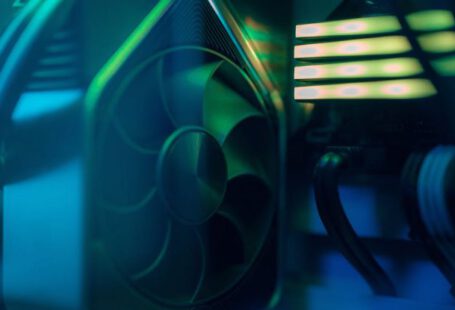In the fast-paced world of technology, software updates have become a regular occurrence for most users. Whether it’s your smartphone, computer, or any other device, you’ve likely encountered notifications prompting you to install the latest updates. But the question remains: Are software updates really necessary for performance? Let’s delve into this topic to uncover the importance of keeping your software up-to-date.
The Importance of Software Updates
Software updates are crucial for various reasons, with performance being one of the primary factors. Updates often include bug fixes, security patches, and enhancements that can significantly impact the overall performance of your device. By addressing known issues and vulnerabilities, updates can improve the stability and efficiency of your software, leading to a smoother user experience.
Enhanced Security Measures
One of the most critical reasons to stay on top of software updates is security. Cyber threats are constantly evolving, and hackers are constantly looking for vulnerabilities to exploit. By installing updates promptly, you can protect your device and personal information from potential security breaches. Updates often include patches for known security flaws, making it essential to keep your software current to mitigate risks.
Optimized Functionality
Software updates also play a crucial role in optimizing the functionality of your device. Developers release updates to introduce new features, improve existing ones, and enhance the overall user experience. By staying up-to-date with the latest software versions, you can take advantage of these enhancements and ensure that your device operates at its full potential.
Improved Compatibility
As technology advances, software updates help ensure compatibility with new hardware and software developments. By keeping your software current, you can avoid compatibility issues that may arise when using outdated versions. Whether it’s connecting to new devices or running the latest applications, regular updates can help you stay ahead and ensure a seamless user experience.
The Myth of Performance Degradation
Some users may be hesitant to install software updates out of fear that it will slow down their device. However, this is largely a myth. While it’s true that updates can sometimes require more system resources, the benefits they bring far outweigh any potential performance impact. In most cases, updates are designed to enhance performance, fix bugs, and optimize the software for better efficiency.
Best Practices for Managing Updates
To make the most of software updates and ensure optimal performance, it’s essential to follow some best practices. Here are a few tips to help you manage updates effectively:
– Enable automatic updates whenever possible to ensure that you receive the latest patches and enhancements without delay.
– Regularly check for updates manually to catch any new releases that may not have been automatically installed.
– Back up your data before installing major updates to avoid potential data loss in case of unforeseen issues during the update process.
– Keep track of update notifications and prioritize critical security updates to safeguard your device against potential threats.
Stay Ahead with Software Updates
In conclusion, software updates are indeed necessary for performance, security, and overall user experience. By staying vigilant and keeping your software current, you can enjoy the benefits of enhanced functionality, improved security, and optimized performance. Embrace updates as a means of staying ahead in the ever-evolving landscape of technology and ensure that your devices operate at their best. Remember, when it comes to software updates, staying up-to-date is always the best practice.





